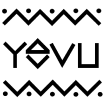Impact
YEVU is a social enterprise with the primary objective of addressing urban poverty through economically empowering disadvantaged micro enterprises, micro producers and artisanal manufacturers in Ghana’s informal sector. This is achieved through manufacturing a socially responsible clothing line in Accra by directly employing these men and women in fair and sustainable full time employment. The individuals employed include small business owners, seamstresses, tailors, support staff and textile manufacturers, and they are engaged in full time work in a small scale factory in Ofankor, Greater Accra which YEVU has set up from the ground up, fully resourced with production facilities, living and accommodation facilities and fully tailored to the needs of the team.
We do not partner with existing factories, or outsource our work, we do everything in house, and have trained and built the capacity of our dedicated team of makers in Ghana accordingly. This means that our overheads and operational costs are incurred directly and are much higher than most ethical clothing companies that manufacture in existing factories, however, it means that YEVU can stay true to its objectives, ensure best practices, operate with full transparency and accountability, and put the needs of the individuals who work for us in Ghana first.
YEVU creates full time jobs, generating sustainable income above Ghana's living wage. YEVU enhances the professional development of the team employed in Ghana through building capacity in technical skill and contemporary design practices. These economic and creative opportunities empower, and as a result improve the lives of individuals, families and immediate communities. This is especially true of the women we work with who are more likely to reinvest income to spur development, educate their family and lift themselves out of the poverty cycle. YEVU works to connect micro producers and artisanal manufacturers with a global market, creating the opportunity for them to operate as part of an international value chain.
Since inception in July 2013, YEVU has relied solely on the revenue it has generated by selling products to a specific market in order to sustain operations. All profits generated have been reinvested in the individuals and businesses that YEVU collaborates with in Ghana and in order to further its objective and deepen its impact.
 |
 |
| Urban poverty and unemployment is affecting many who once made a living in certain vocations in Ghana, including small businesses that specialise in artisanal garment manufacturing. A government shift toward imported textiles and clothing in recent years is a major factor, with continued power cuts and a volatile currency making it even harder for these small businesses to survive and weakening their purchasing power. YEVU aims to improve livelihoods for these economically vulnerable yet highly skilled micro producers, through providing jobs and generating income above the living wage, whilst developing a product that is in demand by higher end global markets. YEVU pays seamstresses and tailors per unit according to a price that they have set themselves. This is a collaborative approach and encourages ownership over a specific design and empowerment. |
The majority of informal sector micro enterprises in Ghana are owned and operated by women. However, women have less access to capital and savings mechanisms, unable to expand and increase their earnings. YEVU's workforce in Ghana is comprised of 70% women, and is managed by women. Increasing the share of income controlled by woman has tangible benefits on their families and communities, contributing to improved education and healthcare. Every single YEVU employee puts some of their income towards their children's education. Furthermore, women are more likely to invest in their own professional development, increasing their self esteem, future earning potential and their ability to participate in decisions that affect them and their family. 92% of women employed by YEVU dream of one day starting their own business, and the money they save working for YEVU will go towards that.
|
 |
 |
| Providing training and facilitating skill development in technical aspects of design not only ensures superior quality and commercial viability of YEVU products but also builds the capacity and aids in the professional development of the people we work with in Ghana. Highly experienced Australian designers work closely with the YEVU team in the Accra sewing workshop during production periods, providing training and skill development in pattern making, pattern cutting, sewing techniques and contemporary design. Increased efficiency and technical ability of each maker are transferable in their own businesses and can contribute to a long-term increase in customers and income. | Ghana’s textile industry once employed around 30,000 people and accounted for approximately 10% of the countries total GDP. Lack of investment and development, and competition from imported pirated textiles and second hand clothing has seen a drastic decline of the textile industry. YEVU supports local industry through purchasing 70% Ghanaian made textiles from 100% female operated wholesale vendors at local market places, and advocating for local manufacturing and patronage across all its operational and promotional activities. |

